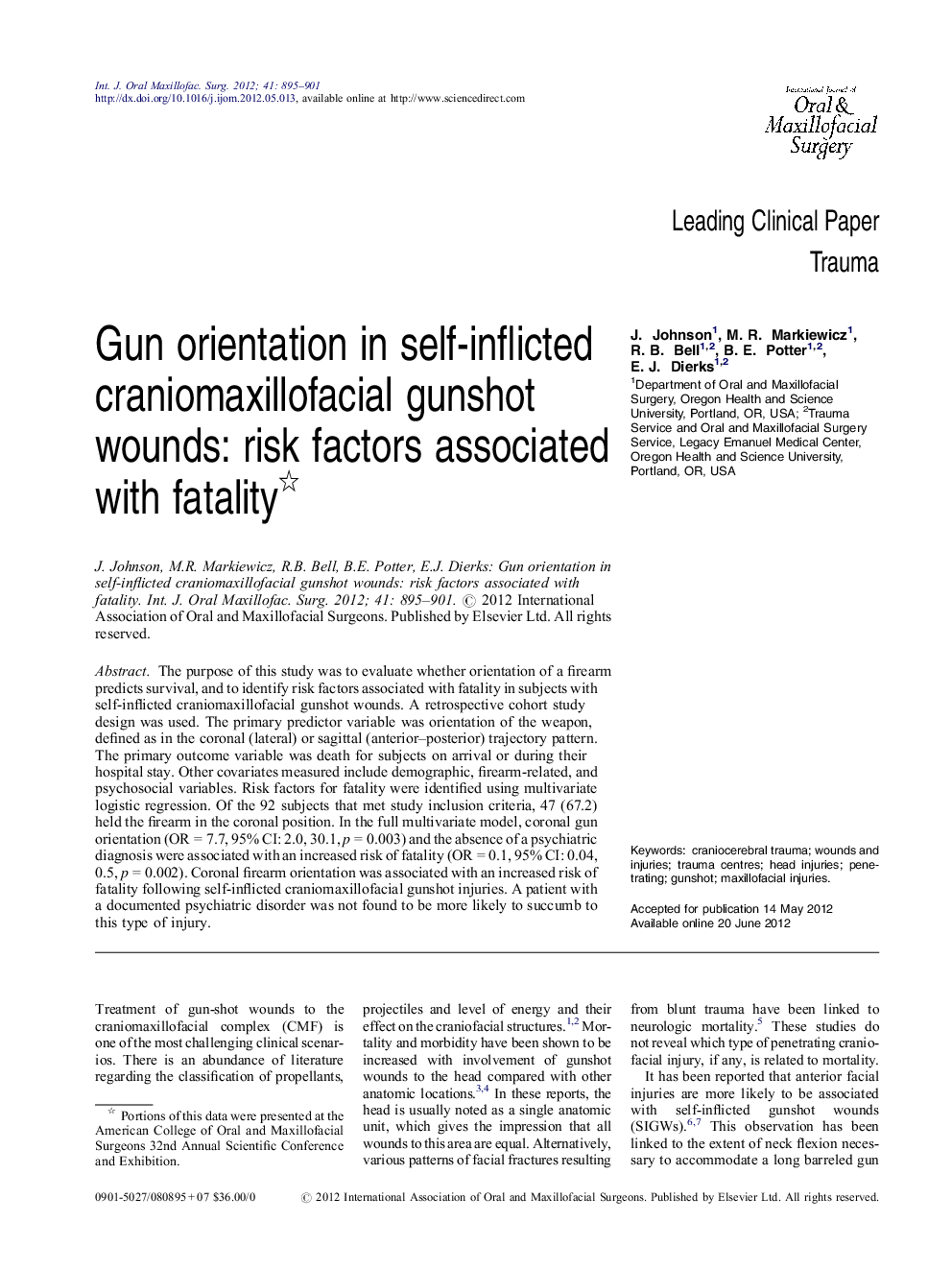| Article ID | Journal | Published Year | Pages | File Type |
|---|---|---|---|---|
| 3132940 | International Journal of Oral and Maxillofacial Surgery | 2012 | 7 Pages |
Abstract
The purpose of this study was to evaluate whether orientation of a firearm predicts survival, and to identify risk factors associated with fatality in subjects with self-inflicted craniomaxillofacial gunshot wounds. A retrospective cohort study design was used. The primary predictor variable was orientation of the weapon, defined as in the coronal (lateral) or sagittal (anterior-posterior) trajectory pattern. The primary outcome variable was death for subjects on arrival or during their hospital stay. Other covariates measured include demographic, firearm-related, and psychosocial variables. Risk factors for fatality were identified using multivariate logistic regression. Of the 92 subjects that met study inclusion criteria, 47 (67.2) held the firearm in the coronal position. In the full multivariate model, coronal gun orientation (OR = 7.7, 95% CI: 2.0, 30.1, p = 0.003) and the absence of a psychiatric diagnosis were associated with an increased risk of fatality (OR = 0.1, 95% CI: 0.04, 0.5, p = 0.002). Coronal firearm orientation was associated with an increased risk of fatality following self-inflicted craniomaxillofacial gunshot injuries. A patient with a documented psychiatric disorder was not found to be more likely to succumb to this type of injury.
Keywords
Related Topics
Health Sciences
Medicine and Dentistry
Dentistry, Oral Surgery and Medicine
Authors
J. Johnson, M.R. Markiewicz, R.B. Bell, B.E. Potter, E.J. Dierks,
